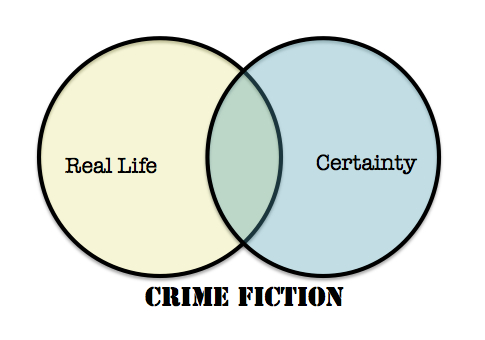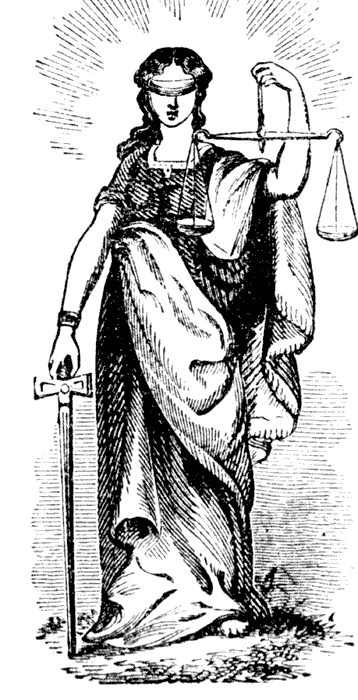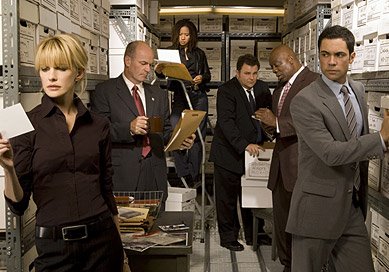 Life is alarmingly full of unsolved mysteries, from the mundane (where did the mate to my favorite sock go?) to the profoundly unsettling, like unsolved murders.
Life is alarmingly full of unsolved mysteries, from the mundane (where did the mate to my favorite sock go?) to the profoundly unsettling, like unsolved murders.
Although there are no precise statistics available, one study of FBI records found that 6,000 killers get away with murder each year. Even in our modern era of computer tracking, surveillance cameras and high-speed communications, the national rate for solved homicides since 1980 is just 63%. That doesn’t even take into account the thousands of people who simply disappear each year.
The knowledge that our mundane existences can be interrupted on such a profound level at any moment is enough to unsettle anyone. Even if it isn’t statistically likely to happen to us, the idea that someone can simply disappear or that the innocuous person you meet across a desk could have gotten away with murder are disturbing prospects. We read mysteries for many reasons, but one of the biggest reasons is because they make cultural fears explicit and (usually) give us a satisfyingly cathartic resolution.
The thrill we experience as readers exploring our darkest fears—violent death or sudden disappearance—is possible because mysteries also give us the pleasure of a concrete bad guy and the knowledge that somehow, some way the perpetrator will be apprehended. In mysteries, there’s rarely any doubt that the bad guy will be exposed for the violent creature he is and punished accordingly.
 Knowing that there is a culprit and that he (sometimes she) will be caught and punished makes addressing our fears deliciously fun. Those terrifyingly suspenseful pages when it seems as though all hope is lost are only exciting because of the catharsis of capture.
Knowing that there is a culprit and that he (sometimes she) will be caught and punished makes addressing our fears deliciously fun. Those terrifyingly suspenseful pages when it seems as though all hope is lost are only exciting because of the catharsis of capture.
As mysteries have moved away from the puzzle mystery popularized in Sherlock Holmes stories toward increasing body counts and escalating violence, one thing has remained constant: the murderer is always brought to account. If he isn’t captured, he is usually presumed dead. Even if the murderer pops up again in a sequel, by all appearances the murderer is out of commission by the end of the book.
The certainty that the murderer will be caught is critical to our enjoyment of the mayhem that he brings about. The worse the crime, the harsher the punishment we need for the scales of justice to balance.
A few authors, such as Ruth Rendell, have written mysteries in which the murderer walks away unpunished. But they are few and far between for a reason: you have to be a very, very talented writer to deny your readers the expected ending without losing them completely. Mysteries without justice for the perpetrator are like birthday cakes without frosting—fundamentally unsatisfying and incomplete.
 Television shows and crime fiction have increased our expectation that even the coldest case can be solved with just the right application of technology. In reality, all the data collected from crimes just means that there is so much data for budget- and time-pressed law enforcement officials to sort through.
Television shows and crime fiction have increased our expectation that even the coldest case can be solved with just the right application of technology. In reality, all the data collected from crimes just means that there is so much data for budget- and time-pressed law enforcement officials to sort through.
Many technological advances have helped solve crimes from petty thefts to murder, but technology is only as good as the people who wield it. In untrained hands, crucial clues can get lost or misinterpreted. It can’t overcome human errors like miscommunication, disorganization or bureaucracy.
Mysteries help us deal with the uncertainty of everyday life by giving voice to our fears and giving us the comfort of resolution. Although justice is imperfect, mysteries remain enduringly appealing for their certainty that for every crime there is a solution, no matter how difficult it is to find.
Carrie Netzer Wajda is an independent researcher and freelance writer in New York. A devotee of romance and mystery fiction, she someday hopes to actually finish one of the 182 gazillion “first books” she has started writing in her lifetime, and maybe even publish it. In the meantime, she loves blogging about her favorite authors.

Exactly!! I always want things to be fair, and how can life be fair if the criminal isn’t caught and punished? Mysteries are like mashed potatoes–comfort food for the anxiety gene.
As I read your article, I couldn’t help but think of mystery writer Fran Rizer who went through what few of us have. Her emotional and logistical ‘support staff’ was her cousin, neighbor, confidante, and best friend since childhood, Linda Derrick, murdered in her home. Like your article, it brings home the reality underlying our profession.
http://criminalbrief.com/?p=15295
Great post. It is shocking to think that 6,000 murderers go uncaught every year. I just posted on my site today about how today’s forensic technology helps not only convict the guilty, but free innocent people from prison.
http://folsoms93.com/2011/05/02/so-you-say-youre-innocent-huh/
Thnaks for Shaering it